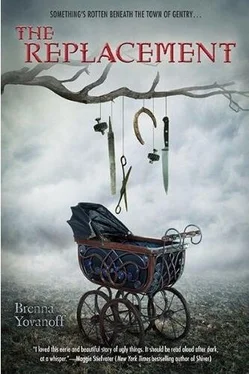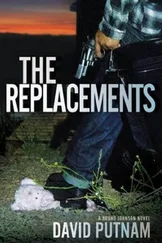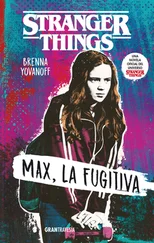She sighed and glanced over at me. “What? Why are you looking at me like that?”
I shrugged. The feeling was easy, but the words wouldn’t come.
She looked at me a long time. Then she touched my cheek. “Good night, ugly.”
She flopped headfirst through the window, landing on the bed with her feet sticking out over the sill. Her slippers were grimy from the shingles and I almost reached out and tweaked her ankle, but I didn’t.
Below me, the neighborhood was sleepy and still. I leaned on my elbows and looked down into the street.
Gentry was two different things, and at night, I could always see that second thing better. The town was its green suburban lawns, sure, but it was also its secrets. The kind of place where people double-checked the locks at night or pulled their kids closer in the grocery store. They hung horseshoes over their front doors and put up bells instead of wind chimes. They wore crosses made from stainless steel instead of gold because gold couldn’t protect them from people like me.
Maybe the brave ones buried quartz and agate in their gardens or left a saucer of milk out for luck—a little backyard offering for whatever might be waiting in the shadows. If someone called them on it, they’d shrug or laugh, but they didn’t stop doing it because hey, we lived in a place where people kept their porch lights on and didn’t smile at strangers. Because when they set out a few pretty rocks with their marigolds, early snow never took the branches off their trees and their yards looked nicer than other people’s. Because mostly, more than anything, night was about shadows and missing kids, and we lived in the kind of place where no one ever talked about it.
After a long time, I climbed back into my room and got into bed. I left the window open so I could breathe. The house wasn’t bad, but still, it was hard to sleep with the air smelling like screws and brackets and nails.
When the breeze came in, I shivered and crawled deeper under the covers. Crickets were shrieking out in the yard, and the trees creaked against each other. Down by the road, in the tall stands of grass, there were mice rustling, night birds chirping away like spinning gears.
I put my pillow over my head to shut out the sound. The noises from the yard were muffled, and I wondered if this was what things sounded like to Roswell. To anyone who wasn’t me. He could walk into class and not get distracted by the rustle of paper or the ventilation system. I had to remember not to flinch when someone closed a door or dropped a book, in case the sound hadn’t been loud enough to startle anyone else.
This was life in Gentry—going to school every day, blending into a world where everyone was happier to ignore the things that didn’t fit, always willing to look away as long as you did your part.
Otherwise, how could they go on living their neat suburban lives?
Maybe it wasn’t that hard. Kids died. They got sick and then sicker, and no one could figure out what was wrong. Someone somewhere lost a son or daughter. Maybe they measured pollution or blamed it on the groundwater. Lead, maybe, or toxic seepage from the slag heap.
Natalie Stewart was just another casualty, buried in the Welsh Street graveyard with my dad standing over her, and that was a sad thing. I knew the script, the normal responses, but when I tried to feel some kind of sorrow or grief, even the polite kind, I just saw Tate sitting alone in the cafeteria. And when I thought of her there, the feeling I got wasn’t sadness, it was loneliness. When I pictured the circle of empty seats around her, I wasn’t mourning for her sister. It was just the same dull ache I felt every day.
The simple truth is that you can understand a town. You can know and love and hate it. You can blame it, resent it, and nothing changes. In the end, you’re just another part of it.
Chapter Five
The Scarlet Letter
Friday was chilly and gray. The blood-draw station had been cleared away, but I was still feeling kind of rickety and made it a point not to go in the cafeteria. In the atrium at the main entrance, rain coursed down the windows so that the glass looked like it was melting.
I spent the morning avoiding things. Crowds and conversations and anyone who might ask me why I was wandering around like a zombie—so, mostly Roswell—but by fourth hour, I was running out of excuses for my lack of school supplies and had to go by my locker. It wasn’t something I was looking forward to.
Freak was gone, though. Instead, there was a weird spiral pattern, covered in thin, snaking lines. The paint had been scraped away in a kind of spiderweb, leaving a network of bare metal that radiated out from what had been one accusatory word inlaid with blood. Some of the areas had been shaded in, black in places and a thick lumpy white in others.
“We fixed your locker,” Danny said, coming up behind me.
Drew nodded and held up a marker and a bottle of Wite-Out.
I studied the tangle of spirals and circles. At the outer edge of the design, correction fluid had been carefully applied over the marker, then scratched away so the ink showed through in ghostly corkscrews. For a project limited by preexisting vandalism and involving only Sharpie and Wite-Out, it was nice work.
Danny leaned his elbow on my shoulder. “We weren’t trying to squash your personal expression or anything. We just thought it might be a bad move to brand yourself too aggressively too early. It might, I don’t know, set the wrong tone .”
They both looked resolutely blank, like they were trying not to look too pleased with themselves. Drew was tossing the bottle of Wite-Out in the air and catching it again. They stood on either side of me and waited for my reaction.
I wanted to do something to show how relieved I was, how grateful, but all I said was, “Thanks.”
Danny punched me. “Don’t thank us . You’re the one who owes the school sixty bucks to get it repainted.”
If it hadn’t been obvious yesterday, Tate Stewart was the new point of interest. She stalked through the halls, past clusters of people who whispered behind their hands. Their glances weren’t the sideways glances of sympathy, but quick, furtive stares, full of curiosity.
They spent whole passing periods watching her and, at the same time, pretending not to. It didn’t seem to matter. She moved through the crowd like she was alone. Like the gossip and the stares couldn’t touch her. Her eyes were closed off, her expression was remote, but something about the set of her mouth made me feel sorry. She didn’t look sad, which made everything a hundred times sadder.
The thing about Tate was, she didn’t have any real interest in what people thought. She never tried to impress them or make them like her. Once, in seventh grade, she joined the boys’ baseball team, even though the baseball team sucked, just to prove that the athletics department couldn’t stop her.
As the morning went on, though, her mouth got thinner. There was a strange feeling coming off her, almost an electric charge. It hung in the air, like she was getting ready to explode, but things didn’t really hit the fan until English.
We were finishing the unit on Romanticism and The Scarlet Letter . Mrs. Brummel was tall and thin, with bleached hair and a lot of different sweaters. She got very excited about the kind of literature that no reasonable person would ever read for fun.
She stood at the front of the room and clapped because she was always clapping. “Okay, today we’re going to talk about guilt and how Pearl’s very existence condemns Hester more effectively than the A . This is most obvious in the fact that some of the villagers believe Pearl is the child of the devil.”
Читать дальше












